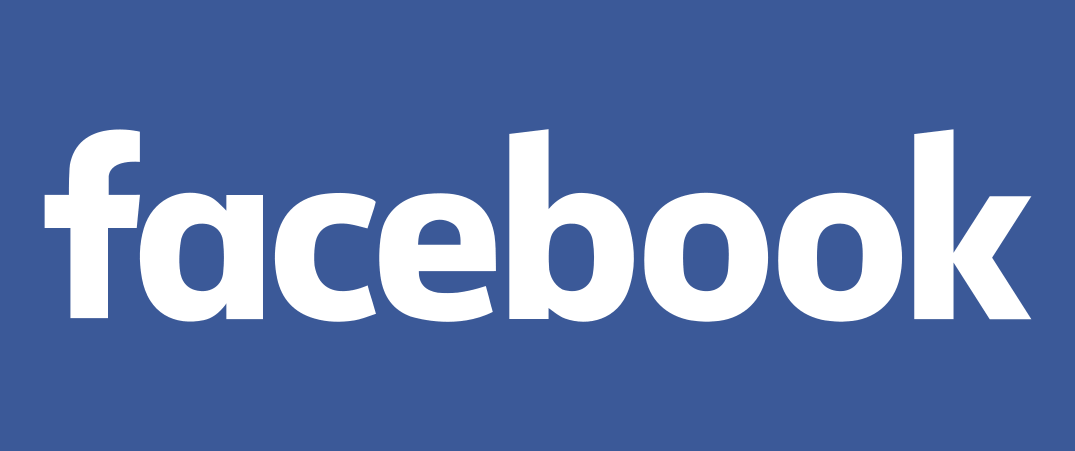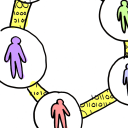5 reasons why Facebook should be in (global, cooperative) public ownership

Just like the railway, Facebook is a private monopoly running a public service. We, the public, don’t have real competition and consumer choice, but we don’t have a democratic say as citizens either.
The internet has been a virtual wild west, fast-moving and little regulated, with tech companies competing for territory. But now there are clear natural monopolies developing.
Author Jonathan Taplin points out that Google has an 88% market share in search advertising, Facebook (and subsidiaries Instagram, WhatsApp and Messenger) owns 77% of mobile social traffic and Amazon has a 74% share in the e-book market.
Economic theory – and real life experience – suggests monopolies need to be regulated, if not brought into public ownership. Here are five reasons why all of us should own Facebook.
Nick Srnicek argued today in the Guardian that Google, Amazon and Facebook are ‘platform monopolies’ and suggested they should be nationalised. He explains that reaching a critical mass of users is key to the success of these businesses, and it’s why they’re so entrenched.
He’s right. But if you’re shouting “I don’t want Theresa May getting hold of my Facebook data”, we’d agree!
The solutions we need here are surely international, not national. And these companies have powerful data about private individuals – we should be wary about how governments could use this, especially in dangerous political situations. Could we create some kind of new cooperative, democratic, accountable institution rather than relying on nation states?
We believe in a broad definition of public ownership. It can be local, regional, national or international. And it can involve different models like cooperatives and community ownership – as long as profits are reinvested and there is democratic control.
We could think really imaginatively about what it would mean for the public to collectively own some of the public spaces on the internet. Put aside the practical challenges for a moment – we’ll come back to those.
But what’s the problem anyway? Those clever people at Facebook and Google know exactly what we want, don’t they? And they’re delivering? Not really..
If you’ve ever felt addicted to the internet, you’re not alone. We’re all endlessly scrolling through Facebook, messaging on Whatsapp or watching the next YouTube video. We might prefer to be out in the sunshine, playing with our children, or getting things done – but we’re staring down at our phones. And it’s not a coincidence.
We are the product here. Tech companies make money by advertising to us. So the more time we spend online, the better. These companies are in a race for our attention, and they’re using their smartest designers in Silicon Valley to take as much of it as they can. These designers often protect their own children and themselves from their own technology.
They know that we get a shot of dopamine every time we see a notification. Those notifications make the internet addictive. Unpredictable but often rewarding – just like gambling in a slot machine, but easier to access.
They know that humans thrive on social praise and respond to social pressure. So they tell us when a message has been seen, so we feel pressure to always be in conversation.
They incentivise teenagers to collect ‘streaks’ of ongoing communication on snapchat, even if they have nothing to say – no wonder so many teens are staying indoors instead of going out partying. When we’re feeling lonely, they give us somewhere to go.
They know how inertia works. So they autoplay the next video, they always give us something more to look at, they leave out any ‘stopping cues’.
If we don’t do something about it, the battle for your attention will only get more brutal.
Do we want to be checking our smartphones every few minutes in a state of addled confusion? It doesn’t have to be this way.
Time Well Spent is a new movement which calls for better tech design. Its founder, Tristan Harris, explains the manipulative tricks that tech companies use to hijack our attention. He says designers could instead be tweaking technology on a large scale to make us less distracted online.
This could involve creating a new metric for measuring success on the internet which helps us live the lives we want. Couchsurfer is leading the way on this – it measures success by clocking up good time spent with new friends, and subtracting time spent online, counting it as a cost.
Perhaps there’s a way of creating another metric that would work against fake news and for useful, authentic news sources?
But why would private tech companies want to do any of this? Why would they put our well being ahead of their profits from advertising?
Professor Philip Howard argues that ‘Facebook is now public infrastructure and should be treated as such’. He believes the platform could help us solve social problems using big data. Public health, national security and democracy could all potentially benefit.
Social media – and the internet in general – creates an exciting marketplace of ideas that could help us all. But the barriers to entry are getting higher and higher.
When We Own It started up in 2013, there was much more ‘organic reach’ on Facebook (a good response to a post meant it would reach a bigger audience). Now, it’s increasingly a place where organisations must pay to connect with their supporters and reach new ones. That trend is set to continue.
The deck is stacked in favour of multinationals with big advertising budgets, while smaller start ups (which may have good ideas) struggle to get a foothold.
The internet itself is a public space and so are social media. Facebook and Twitter are places where people share information, explore new ideas, promote products and coordinate political activity. They’re not going away anytime soon – and we wouldn’t want them to.
But right now, they are places where the rules are set and enforced by unaccountable corporations. For example, Facebook decides on the range of ‘reactions’ we can give (creating profitable data about our emotional states). It can decide what content will be censored, with no reference to us.
Facebook is not a democratic, online public space – but it could be. It could even help to create more accountability for global decision making – or provide a place to re-engage people in local decisions. We could rename it ‘Placebook’.
Maybe, but how on earth do we do this? Well, that’s a tricky one.
The first option is to create an alternative platform. This is extremely challenging. Social media’s power and attraction comes from its ‘network benefits’ – why switch platform if your friends are still on Facebook? A switch would need to be a coordinated, well promoted global effort to have a chance of success.
Another way forward would be buying out the existing social networks. This would be a huge challenge, financially and politically. There is a glimmer of hope however – there’s currently a project for Twitter users to buy out Twitter, creating a community owned resource.
A third and final way could be to appeal to Zuckerberg directly! He’s said he wants to ‘take the long view and build the new social infrastructure to create the world we want for generations to come’. Zuckerberg, are you listening?! Could our social infrastructure be truly democratic please, and built for people, not profit?
There are no easy answers, but ultimately it’s up to us to make this happen. Technology offers us so much – we need a real say over how it develops.
Facebook should belong to all of us. Love, like and share if you agree!
This article was originally published on the We Own It website.






